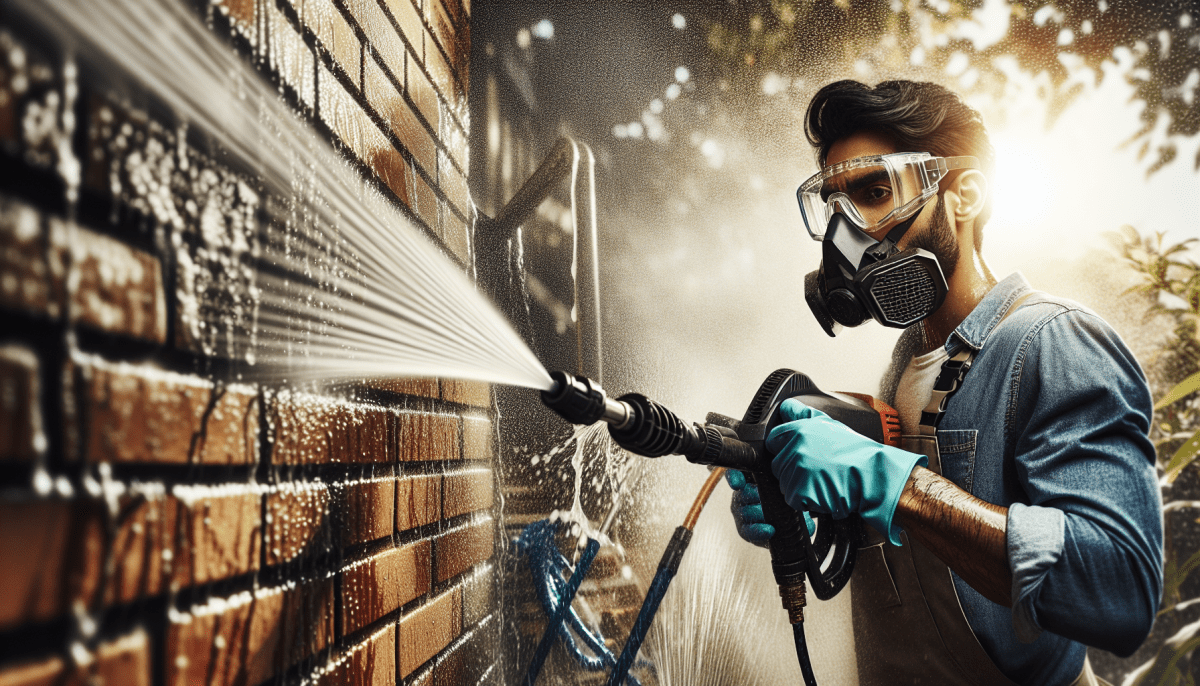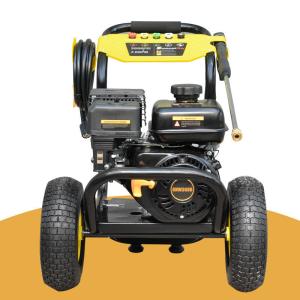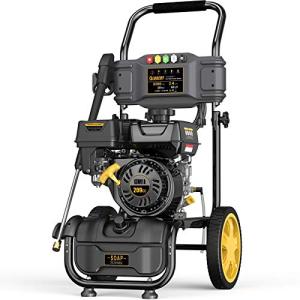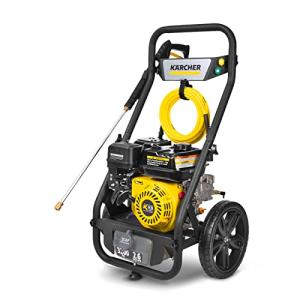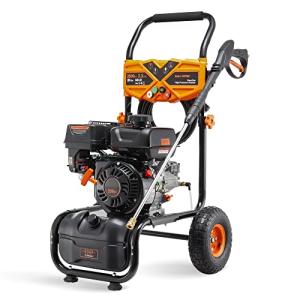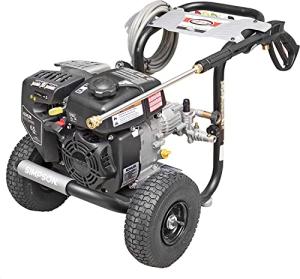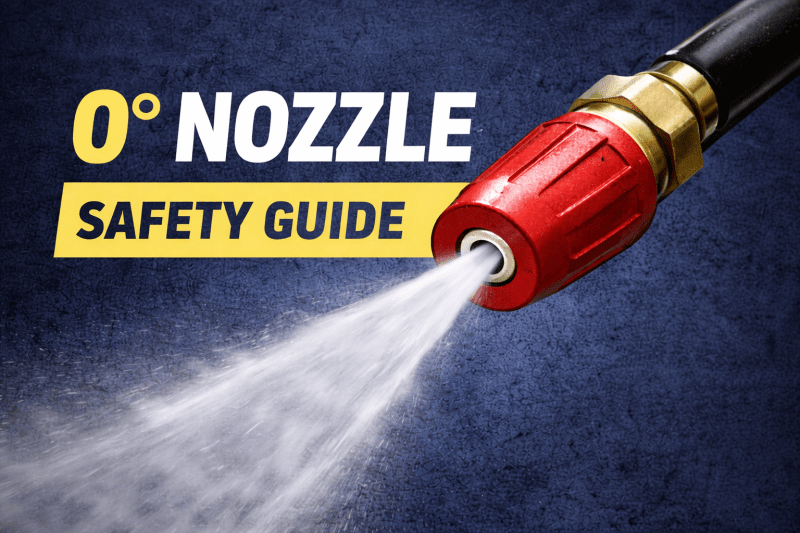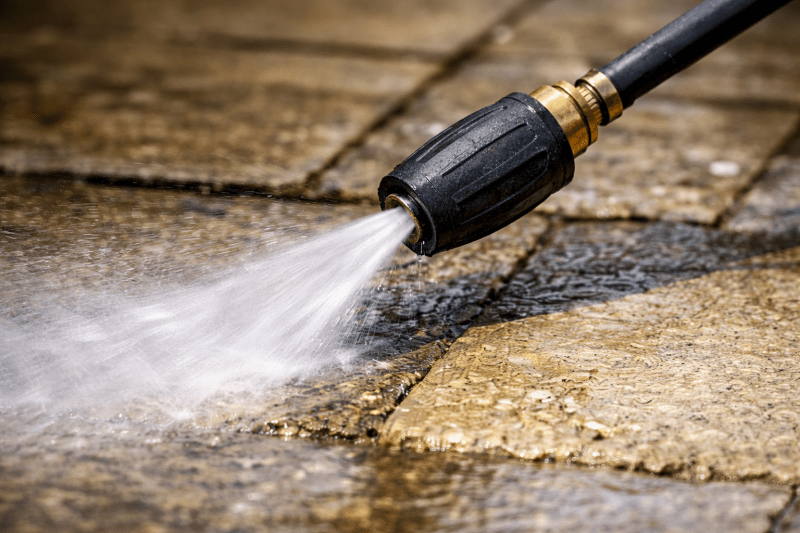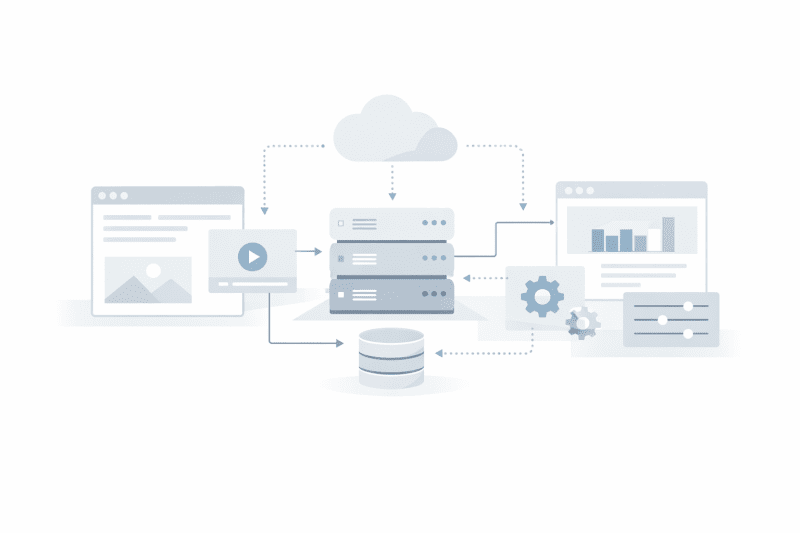The Benefits of Using a Gas Pressure Washer
Gas pressure washers are becoming more and more popular among homeowners and professionals alike. This is because they offer several advantages over their electric counterparts. Here are a few benefits of using a gas pressure washer:
- More power: A gas pressure washer is much more powerful than an electric one. It is able to generate much higher pressures and flow rates, which means that it can tackle tougher cleaning jobs with ease.
- Portability: Gas pressure washers are also more portable than electric ones. They don't need to be plugged into an electrical outlet and they can be easily moved from one location to another.
- No cords: With a gas pressure washer, you don't have to worry about cords getting tangled or tripping over them. This also means that you can use the washer in areas where there are no electrical outlets.
- Longer lifespan: Gas pressure washers tend to have a longer lifespan than electric ones. This is because they are built with more durable components and require less maintenance.
- Faster clean-up time: A gas pressure washer can help you clean surfaces much faster than if you were using a brush or hose. This means that you can complete cleaning projects much more quickly and efficiently.
- Better for heavy-duty jobs: Gas pressure washers are ideal for heavy-duty jobs such as cleaning driveways, decks, and sidewalks. They are able to remove even the toughest stains and grime.
Overall, there are many benefits to using a gas pressure washer. They offer more power, portability, and efficiency than electric pressure washers, making them an excellent choice for homeowners and professionals alike.
How to Choose the Right Gas Pressure Washer for Your Needs
When it comes to choosing a gas pressure washer, there are several factors to consider. Here are some key things to keep in mind:
Power
One of the most important things to consider is the power of the pressure washer. When it comes to gas pressure washers, the power is often measured in PSI (pounds per square inch) and GPM (gallons per minute). The higher the PSI and GPM, the more powerful the pressure washer will be.
Before you purchase a pressure washer, think about what you’ll be using it for. If you’ll be cleaning stubborn dirt and grime, you’ll want a pressure washer with higher PSI and GPM. If you’ll be using it for lighter cleaning jobs, you may be able to get away with a less powerful machine.
Noise Level
Gas pressure washers tend to be fairly noisy, so if you’ll be using your pressure washer in a residential area, you may want to consider the noise level. Look for models that have noise-reducing features, such as insulated engines or exhaust mufflers.
Mobility
Consider how easy it will be to move your pressure washer around. Look for models with wheels and handles, and make sure it’s a size and weight that you can comfortably move on your own.
Durability
You’ll want to choose a pressure washer that will last for several years, so look for models that are made with high-quality materials. Stainless steel or aluminum frames tend to be more durable than plastic frames.
Cleaning Accessories
Most gas pressure washers come with a variety of cleaning accessories, such as different nozzles, hoses, and wands. Think about what types of cleaning jobs you’ll be doing, and make sure the model you choose comes with the accessories you’ll need.
By considering these factors, you’ll be able to choose a gas pressure washer that will meet your needs and last for years to come.
Maintenance Tips for Maximizing the Performance of Your Gas Pressure Washer
Gas pressure washers are great for tough cleaning jobs. They can blast away dirt, grime, and stains from surfaces like sidewalks, driveways, and fences. However, like any equipment, they need regular maintenance to run at their best. Here are some tips for keeping your gas pressure washer in top shape.
1. Change the oil regularly.
Like any engine, the motor in your gas pressure washer needs oil to keep running smoothly. Check the oil level often, and change it after every 50 hours of use or every three months, whichever comes first. Be sure to use the right kind of oil, as specified in the owner's manual.
2. Check the air filter.
The air filter is another crucial part of the engine. It keeps dirt and debris from getting inside and causing damage. Check it often and replace it when it's dirty. A clogged air filter can cause the engine to run poorly and even overheat.
3. Inspect the spark plug.
The spark plug provides the spark that ignites the fuel in the engine. Over time, the spark plug can get dirty or worn out, which can cause starting problems or poor performance. Check the spark plug often and replace it if necessary.
4. Clean the nozzle.
The nozzle is the part of the pressure washer that sprays the water. Over time, it can get clogged with dirt, debris, or minerals from the water. This can cause a decrease in pressure or even damage the pump. Clean the nozzle often with a small wire or paperclip.
5. Store properly.
When you're not using your gas pressure washer, store it properly to keep it in good condition. Drain the gas tank and run the engine until it's dry. Make sure it's clean and dry before putting it away. Store it in a cool, dry place where it won't be exposed to the elements.
By following these tips, you can keep your gas pressure washer running smoothly for years to come. Regular maintenance will not only maximize its performance but also prolong its lifespan.
SurmountWay 3600 PSI Gas Pressure Washer for Cars
Experience powerful cleaning for your car with the surmounting pressure of 3600 PSI
Product information
$346.99 $322.70
Product Review Score
4.54 out of 5 stars
136 reviews